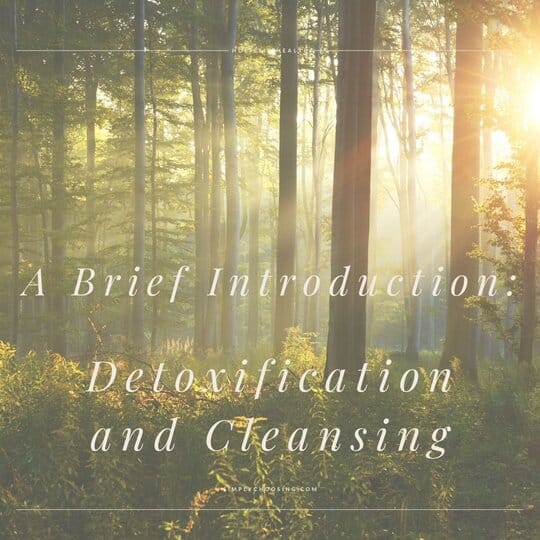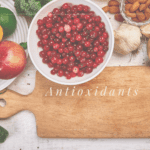Disclosure: Please note that this post may contain affiliate links, meaning that I get a commission if you decide to make a purchase through my links, at no cost to you. Please refer to my Privacy Policy for more information.
What will you get from this blogpost:
- Replacing plastic water bottles with a reusable glass or stainless steel bottle.
- Choosing organic, whole foods as often as possible.
- Switching your makeup and personal care products to natural products.
- Using natural cleaning products for your home and natural laundry detergents for your clothes.
- Filtering the water and air in your home.
Eat nutrient-dense, whole foods and avoid processed foods
Here are particularly good foods that promote the elimination of toxins:
- Cruciferous vegetables: broccoli, brussel sprouts and cauliflower.
- Bitter vegetables: watercress, kale and arugula.
- Artichokes
- Lemons
- Ginger
Hydrate your body
We all have different needs for water depending on our body size, activity level, the climate we live in, and our diet. As a rule of thumb: your urine should be clear and you should not go for long periods of time without urinating. For most people, that’s about 2 to 2.5 liters of water per day. In addition to plain water, medicinal herbal teas help detoxify your body. Some examples:
- Milk Thistle
- Dandelion root
- Nettles
- Green tea
When buying tea, I personally recommend loose tea, as many of the tea bags used commercially contain microplastic elements that can do more harm than good to your body.
Regular bowel movements
A healthy person should have regular bowel movements about 2 to 3 times a day. Ideally in the morning and in the afternoon. If you do not have regular bowel movements, toxins can be reabsorbed into your body. In addition, the food you have eaten will ferment after a day or two, and the result is a bloated, constipated abdomen. The worse it gets, the more symptoms appear, including bad breath, abdominal pain, and other intestinal disorders.
To make sure you have regular bowel movements, make sure you stay hydrated, eat high-fiber foods and move your body daily. Also, probiotics and magnesium can be helpful supplements. Most importantly, make sure to find the cause of your digestive problems.
Getting enough sleep
Sleep is a tricky thing. Most of the time we underestimate the power of sleep, but when we do sleep, we may sleep too much, thinking that it would do us good, which in turn can be very harmful to our body.
Many bodily processes occur during the hours of sleep, including detoxification through the glymphatic system. Therefore, it is important to get enough and quality sleep every night. However, this should range between 6-8 hours of sleep per night and no more.
If you are having trouble sleeping due to stress, the following strategy may be helpful:
- A relaxing nighttime routine: warm bath, a relaxing yoga class, or a bedtime meditation.
- Refraining from screens: read for 30 minutes before going to bed instead.
- Drinking a calming tea: chamomile, lavender, lemon balm, and St. John’s wort.
By limiting your exposure to toxins and optimizing your diet and lifestyle, you are sure to notice some changes in your well-being. Therefore, I encourage you to choose at least one of these strategies and comment below on how you will implement it in your life today. Outlining and defining how you will implement it will help you to actually do it.
I also believe and recommend doing at least two detoxification programs per year and focusing on a clean and whole food diet throughout the year to promote your health and well-being.
[/et_pb_text][/et_pb_column][/et_pb_row][/et_pb_section]- A brief introduction to detoxification and cleansing
- Pros and cons you should be aware of before doing a detoxification program
- 5 simple ways to incorporate detoxification into daily life
Topics like “detox” and “cleanse” have become very popular. Marketers sell you everything from nutritional supplements to “freshly” squeezed juices that you can drink as soon as they arrive at your doorstep. All of this has its benefits, but it’s not all about buying something to make you feel better. It’s about becoming aware of your body, knowing what’s good, and incorporating new healthy practices into your life.
Surprise, surprise: your body knows how to detoxify. In fact, your body is already detoxing for you as you read this. So it actually has things under control quite well. However, sometimes we need to create the conditions for the body to optimize these processes. And that’s what this post is about today.
What are Detoxification and Cleansing?
Detoxification and cleansing are both ways to promote health. At the heart of it is a diet of clean, natural, and healthy foods that are rich in nutrients. The goal is to remove waste and toxins that have accumulated in your body over the years or even decades, recharge your body with energy, and help eliminate cravings and bloating.
The terms are often used interchangeably, but if you understand the differences, you’ll find that detoxes and cleanses are two different things, working perfectly in harmony:

Cleansing is the first step in restoring your body’s health. It is often described as a diet-only program where you focus on natural, healthy, and non-processed foods for a few days, a week, or, for some, a whole month or longer. The main goal of cleansing is to relieve the digestive system and combat bloating or irregularity in bowel movements.
A detox takes cleansing to the next level. Here, the goal is to regenerate the body at a deep cellular level. When done properly, a detoxification program releases toxins in the kidneys, liver, lungs, colon, and skin, neutralizing them and eliminating what the body needs to eliminate. This ensures that harmful toxins that accumulate over time are completely removed from the body.
A detox program usually lasts between a few days up to a week. Afterward, you’ll not only feel less bloated but also refreshed and revitalized. You’ll most probably also have better mental clarity, hunger and cravings will subside, hormones will be rebalanced, and energy will increase.
What is the detoxification and cleansing process?
Detoxification and cleansing programs vary depending on your needs and what your coach offers. They may involve a single process or a variety of them, including:
- Fasting
- Juicing
- Eating only certain foods
- Use of dietary supplements or herbal remedies
- Employing enemas, laxatives, or colon hydrotherapies
- Reducing environmental exposure to toxins
- Sauna sessions and skin exfoliations
Important: It is advisable to perform a detox only with an experienced coach, as some practices can be harmful to the body if done incorrectly.

Why should you consider detoxing?
Detoxification is in operation 24 hours a day. After all, the human body is a self-healing, self-renewing, and self-cleaning organism. Therefore, if we create the right conditions, well-being is the body’s natural state.
Unfortunately, today it is almost impossible to live in the right conditions as we did decades ago. With global warming, air, water, and plastic pollution, and the thousands of chemicals we have artificially produced, we cannot deny that the world we live in is a major contributor to waste and toxins. We are constantly exposed to chemicals in the air, water, our food, personal care, and cleaning products, just to name a few.
If we don’t take care of our bodies, these exposures will eventually overwhelm them, which in turn can cause illness, disease, and in the worst cases, even death. However, if we clear out these obstacles and add what we lack from time to time, our body has the ability to heal, renew and cleanse itself.
What else you should consider: what are the implications if not done right
As already discussed, it is definitely advisable to perform detoxification or cleansing with an experienced coach. Also, even if such detoxification or cleansing has its advantages, there are still a number of risks that you should know about and take into account.

First, there are only a small number of studies on detoxification programs. While they have produced positive results in terms of weight and fat loss, insulin resistance, and blood pressure, the studies themselves have been of low quality.
In addition, there are some concerns about the safety of these practices that you should be aware of:
- The U.S. Food and Drug Administration (FDA) and the Federal Trade Commission (FTC) have taken action in the past against several companies selling detox/cleanse products because they contained unapproved, potentially harmful ingredients, and were marketed with false claims.
- If you have diabetes, you should consult your doctor before making any major changes in your eating habits, such as going on a detox diet.
- Colon cleansing procedures can have side effects, some of which can be serious. People with gastrointestinal disease, surgical procedures on the colon, severe hemorrhoids, kidney or heart disease are more likely to experience harmful effects.
- Detoxification programs may include laxatives that can cause diarrhea so severe that dehydration and electrolyte imbalance occur.
These statements may sound scary, but they have nothing to do with the benefits of detoxifying and cleansing the body in general.
To distance yourself from the risks, however, I generally recommend that you do not count on industrially manufactured products, but rather focus on natural products and homemade juices. Nevertheless, you should know about the risks before signing up for one of the countless detox programs.
How to get started
Before I get into the “how-to,” I want you to know that the following tips focus on things you can incorporate into your daily routine without much effort.
Detoxing and cleansing don’t have to be a one-size-fits-all program. There are many simple things you can implement into your daily life to both reduce exposure to harmful chemicals and help your body eliminate the toxins you can’t avoid.
For a proper detox and cleansing program, I’ll be writing another in-depth blog post soon.
So, let’s get started with the how-to now:

Limit exposure to toxins that you can control
For example:
- Replacing plastic water bottles with a reusable glass or stainless steel bottle.
- Choosing organic, whole foods as often as possible.
- Switching your makeup and personal care products to natural products.
- Using natural cleaning products for your home and natural laundry detergents for your clothes.
- Filtering the water and air in your home.
Eat nutrient-dense, whole foods and avoid processed foods
Here are particularly good foods that promote the elimination of toxins:
- Cruciferous vegetables: broccoli, brussel sprouts and cauliflower.
- Bitter vegetables: watercress, kale and arugula.
- Artichokes
- Lemons
- Ginger
Hydrate your body
We all have different needs for water depending on our body size, activity level, the climate we live in, and our diet. As a rule of thumb: your urine should be clear and you should not go for long periods of time without urinating. For most people, that’s about 2 to 2.5 liters of water per day. In addition to plain water, medicinal herbal teas help detoxify your body. Some examples:
- Milk Thistle
- Dandelion root
- Nettles
- Green tea
When buying tea, I personally recommend loose tea, as many of the tea bags used commercially contain microplastic elements that can do more harm than good to your body.
Regular bowel movements
A healthy person should have regular bowel movements about 2 to 3 times a day. Ideally in the morning and in the afternoon. If you do not have regular bowel movements, toxins can be reabsorbed into your body. In addition, the food you have eaten will ferment after a day or two, and the result is a bloated, constipated abdomen. The worse it gets, the more symptoms appear, including bad breath, abdominal pain, and other intestinal disorders.
To make sure you have regular bowel movements, make sure you stay hydrated, eat high-fiber foods and move your body daily. Also, probiotics and magnesium can be helpful supplements. Most importantly, make sure to find the cause of your digestive problems.
Getting enough sleep
Sleep is a tricky thing. Most of the time we underestimate the power of sleep, but when we do sleep, we may sleep too much, thinking that it would do us good, which in turn can be very harmful to our body.
Many bodily processes occur during the hours of sleep, including detoxification through the glymphatic system. Therefore, it is important to get enough and quality sleep every night. However, this should range between 6-8 hours of sleep per night and no more.
If you are having trouble sleeping due to stress, the following strategy may be helpful:
- A relaxing nighttime routine: warm bath, a relaxing yoga class, or a bedtime meditation.
- Refraining from screens: read for 30 minutes before going to bed instead.
- Drinking a calming tea: chamomile, lavender, lemon balm, and St. John’s wort.
By limiting your exposure to toxins and optimizing your diet and lifestyle, you are sure to notice some changes in your well-being. Therefore, I encourage you to choose at least one of these strategies and comment below on how you will implement it in your life today. Outlining and defining how you will implement it will help you to actually do it.
I also believe and recommend doing at least two detoxification programs per year and focusing on a clean and whole food diet throughout the year to promote your health and well-being.
[/et_pb_text][/et_pb_column][/et_pb_row][/et_pb_section]






0 Comments
Trackbacks/Pingbacks